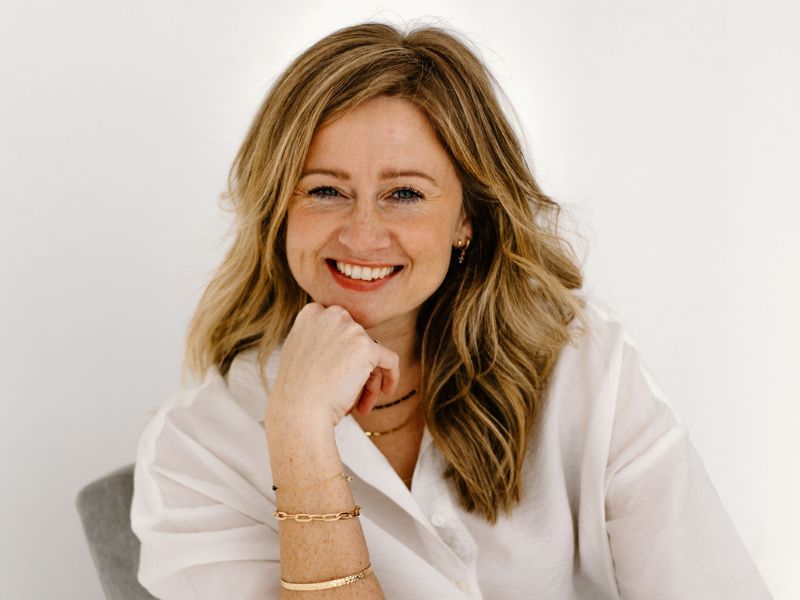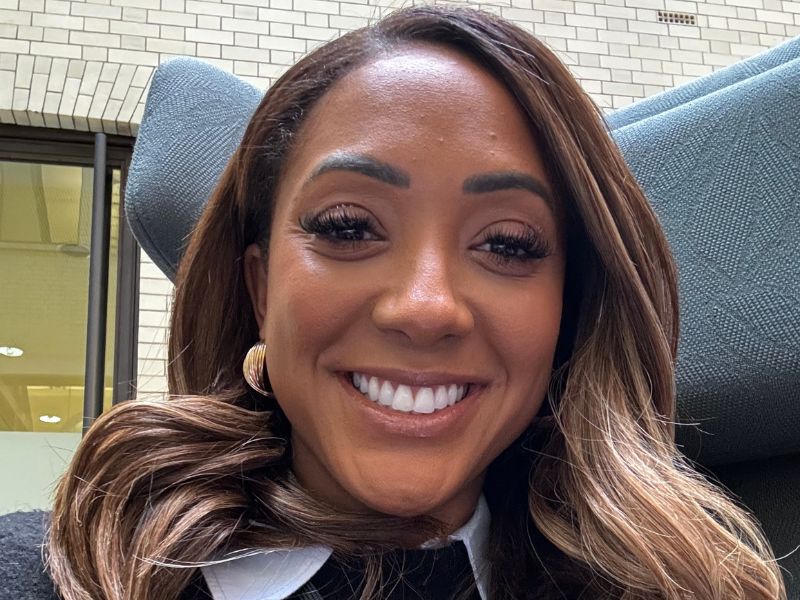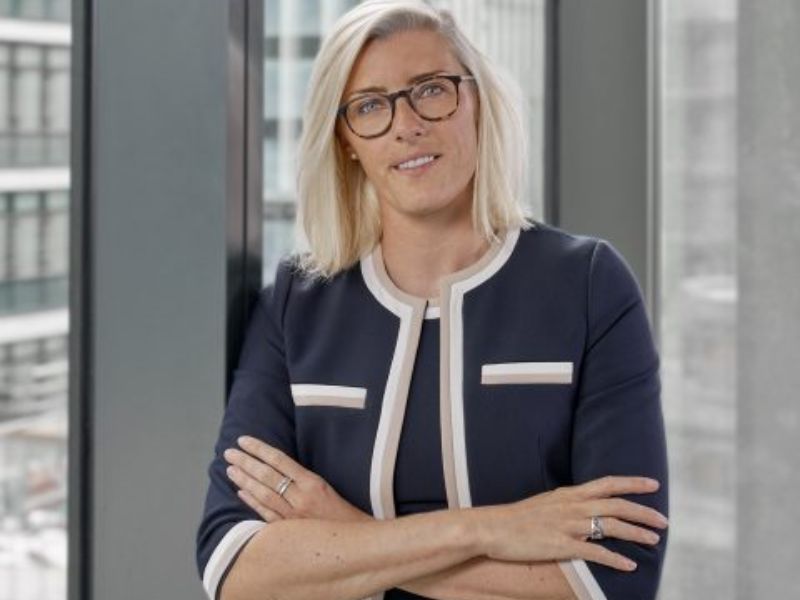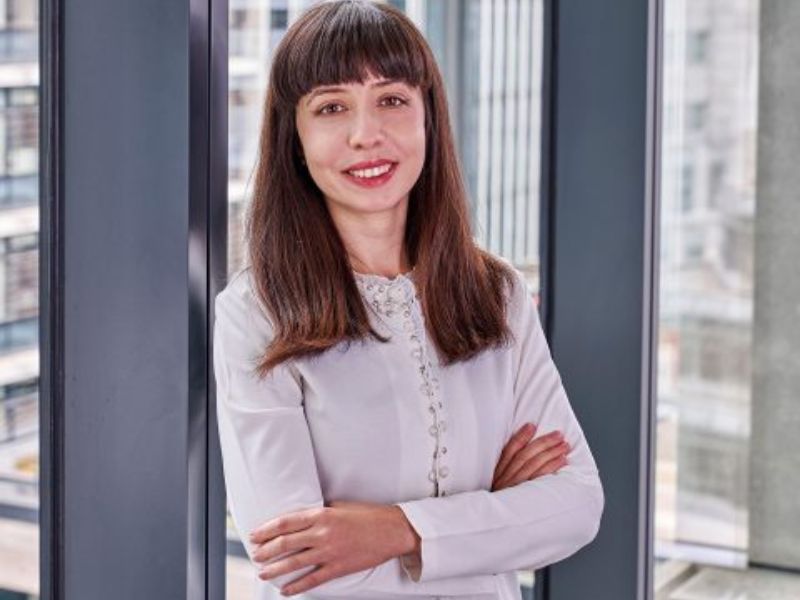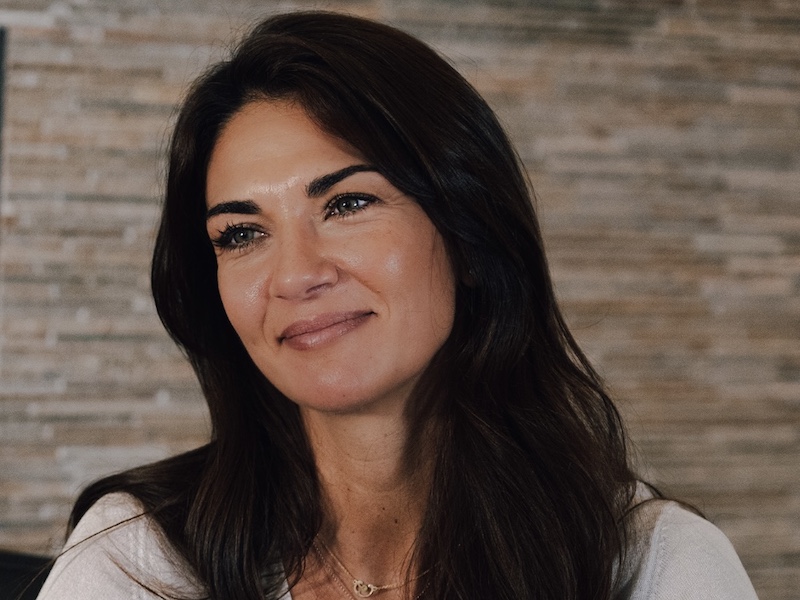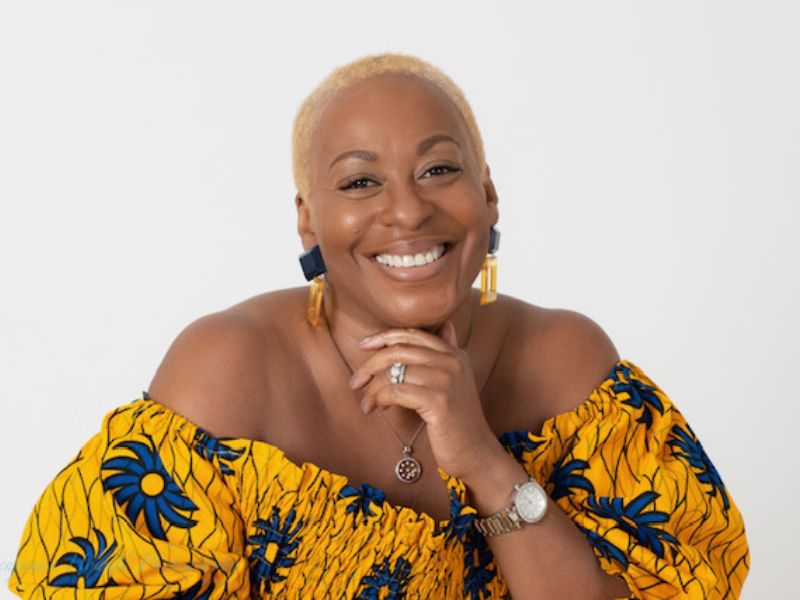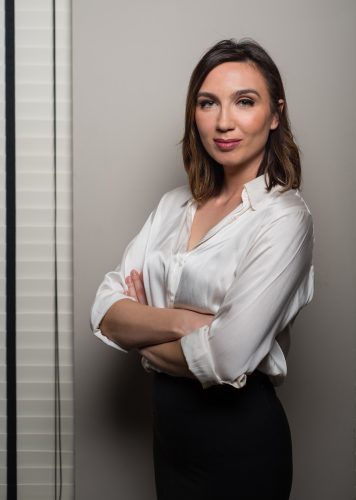 Dr Larisa Corda is an Obstetrician and Gynaecologist and is one of the UK’s leading Fertility experts.
Dr Larisa Corda is an Obstetrician and Gynaecologist and is one of the UK’s leading Fertility experts.
She qualified from Imperial College London and her training has been both in the UK and Australia, seeing her gain an understanding and appreciation of gynaecological, obstetric and fertility issues across a wide international population. She believes in a holistic approach to treating a patient that addresses many lifestyle factors, as well as a combination of Eastern and Western medical approaches, and is a passionate womens’ rights ambassador, with roles on a number of international charities that have included UN Women and The Circle. She believes in using innovative natural and mild IVF techniques to assist conception where needed, is ITV This Morning’s and Channel Mum’s Fertility Expert, regularly appears and is quoted by the media, and has several research interests, some of which have been published in international journals. These include the effect of stress on reproductive outcomes, older age motherhood, as well as the current global injustice of inequity of access to reproductive care. She is also brand ambassador for KicksCount and Wellness Sisters, and has launched her own website www.drlarisacorda.com which offers guidance and support for all those wanting a natural empowering approach to their fertility. In keeping with this, she has devised a unique programme for fertility and pregnancy called The Conception Plan, which aired on This Morning, and provided help for couples affected by infertility who applied and did not qualify for treatment on the NHS. The holistic approach encompassing diet, exercise, stress management and toxin free living resulted in a natural conception for one couple, after 3 years of struggle, and the birth of This Morning’s very own Baby Freddie!
For more details please visit www.drlarisacorda.com
Tell us a bit about yourself, background and your current role
I was born in Sarajevo, former Yugoslavia, but came to live in the UK shortly before the civil war started. Seeing a country I love and felt safe in completely dismantled, and many people out of that having to rebuild their lives entirely from the beginning, instils a certain courage and resilience within you and I decided to dedicate myself to working hard and making the best out of an education I was very privileged to receive, and a life I was privileged to have. It was also a time when I absorbed a lot of information and read huge amounts, including Simone De Beauvoir’s The Second Sex, deciding that one of my main callings was to ensure women have the same opportunities in life as men, and becoming a young feminist. It was also a time when Dr Christian Northrup’s book on womens’ ability to heal their bodies through holistic means had come out, and my mum, inspired by The Oprah show, bought a copy. Without even realising how much of an influence this book was going to have on my life, I casually picked it up and started reading without ever putting it down. I was 16 and this book was incredibly new age, with a female doctor suddenly saying that in some circumstances, the patient is capable of treating their own disease without the necessity of drugs or surgery. It was love at first sight for me and having always been fascinated with the wonder of the esoteric and intangible, I became transfixed with the concepts of healing through deep inuition. After finishing my schooling, I gained a place at Imperial College London to study medicine. The college was renowned for its tech prowess but the medical school was very new when I started. I loved the clinical exposure to patients and on gaining my medical degree, spent a few years as a junior doctor in London. Given my lead up to events so far, it became increasingly obvious that I was drawn towards womens’ health and decided to specialise in Obstetrics and Gynaecology. I spent the majority of my time practising in London, as I do now, but I also practised in Australia, exposing myself to a whole range of different conditions and approaches to management, including a big emphasis on the effect of nutrition and exercise. My training was down what you would call the traditional Western route, but increasingly I found myself drawn towards Eastern practice which has always typically been shrouded in a lot of mystery, but which relies on much more intuitive methods to help. I’ve been involved in caring for women from pre-conception through to pregnancy and thereafter. And what always fascinated me the most was the effect I was beginning to see of people’s lifestyles on their condition, determining everything from the burden imposed by their disease to how someone would end up delivering their baby. I became intrigued by the idea of being able to temper your own health using a combination of physical, psychological, and lifestyle factors, that include nutrition, exercise and spiritual wellbeing. This is how my holistic approach was literally born into being, no puns intended!
My fascination with reproductive medicine grew naturally in that being a self confessed feminist, I realised very early on in my training that the situation for women in the future was going to become more and more demanding and that childbearing was going to become more difficult to manage. I was asked to write a chapter in a book called Biopanic, all about the effects of older age motherhood. This is even before we started witnessing the big demographic shift in women having children later in life. To this day, it remains the most popular chapter in the entire book, which is evidence of the fact this subject is huge and has a massive impact on people’s lives. However, practically all over the world, access to IVF is restricted and biased towards those who can afford it. Infertility is not necessarily recognised as a disease and this dictates many government decisions over how to provide the care. I became involved in investigating the inequity of access to reproductive healthcare whilst living in Australia, and back in the UK I researched the impact of emotional wellbeing on IVF.
Spending my time caring for women of all backgrounds and inspired by the women involved in conflict as a result of the Former Yugoslav war, it became important for me to be able to lend a voice to all the disadvantaged women around the world, and I was privileged to act as an ambassador for UN Women, whilst working in Australia, and then a member of The Circle here in the UK, which is an organisation that promotes womens’ rights all around the world. Campaigning and charity work are very important to me and I help to support several other organisations committed to empowering women and removing taboos, such as WUKA and KicksCount.
During my time at medical school, I developed a passion for journalism and education, which I’ve been blessed to be able to share in the general media and as a medical expert on TV. It gives me so much pleasure to see that during the 10 minutes of airtime and listening to my information, someone has finally managed to get the advice they needed, which they may not have otherwise had access to, and managed to change their lives, in particular when it leads to a much longed for baby! I really do believe that we hold so much power to change the outcome of our own lives and our health and as a result of several encouraging friends and a long labour of love, I launched my own website www.drlarisacorda.com dedicated to spreading the holistic healthcare message within womens’ health. It’s a platform for men and women to come and gain advice and information and where I also educate on how to holistically adjust your lifestyle to help you be your fittest and most fertile self.
Did you ever sit down and plan your career?
I’m not a huge planner and I’m very instinctual as a person, so I never really sat down to plan my career nor my life. Having seen people lose so much as a result of my native country’s civil war, it became clear to me from a young age that the external environment we invest so much in, is actually quite transient and can disappear in no time at all, leaving you to start from scratch. The best that we can do is invest in ourselves, our own education, and who we are as people, because this is something that is ever lasting and can be used to build mountains again, even where they may have been crushed before.
Have you faced any challenges along the way?
Yes, absolutely, but then I also believe that without those challenges I would not be who I am today. There were the initial challenges of learning a new language and leaving behind the country where I was born, and losing some of those who were nearest to me from a young age.
But after that, the challenges which followed I believe have been faced by many women forging their own identities in what is still essentially a world where we are not treated the same as men. Ever since I can remember, there have been certain individuals and institutions telling me to act less than I am and to fit a mould they had created for me. From when I was prepubescent, I wanted to discuss vaginas and periods, it seemed the most natural thing in the world to me, but I was told that I couldn’t do that, that it was crude and unattractive and too feminist. I faced bullies at school who taunted me because I didn’t look conventional and because I wanted to be an intellectual who helped change the world. The nay sayers re emerged later, but in different guises within the medical system, telling me that I didn’t look serious enough, that my ideas of how I wanted to help patients were too far fetched, that my interest in spirituality and Eastern medicine was wrong, that to fix a person I had to chose between giving them either medicine or surgery, that holistic medicine was unfounded and went against Western training, that both me and my theories were ridiculous.
I won awards but certain men tried to trivialise the achievement telling me I’d got them on the basis of how I looked and not my intellect. I stood up for myself challenging institutional voices who told me to keep my head down.
It took time, a lot of soul searching and some incredible women and men to help me realise that challenging conventional notions was something to be proud of and that it was time to stop apologising.
That to be different and to want to be a change is positive and that playing small, dumbing down or confining yourself to a box to appease other people’s insecurities is not an option.
What has been your biggest achievement to date?
I’m so grateful to have had the chance of an education that so many girls and women around the world can only dream of having, because they are born in a place that does not value them, or are part of a system where female empowerment via education is seen as dangerous. I will never take that education for granted because it has meant everything to me and given me the platform to start challenging conventional norms and introducing new concepts to womens’ health management, combining Eastern and Western approaches to help couples achieve pregnancy, out of which The Conception Plan was born. I’m blessed to have had the opportunity to share this concept on the UK’s biggest daytime show that I have idolised and watched since I was a child, This Morning, where we invited couples to apply to be coached by me in naturally boosting their fertility. These were all couples who had medical conditions that were diagnosed, which meant becoming pregnant was difficult, and in most cases were denied treatment by the NHS because they did not fit the criteria necessary to qualify. The show and myself took them on a dedicated programme addressing all the main pillars of fertility which form The Conception Plan. As a result, we now have a couple who had struggled to get pregnant for 3 years, both she and him having been diagnosed with significant problems that meant they were labelled subfertile, with no access to care until applying on the show, and are now just over 20 weeks pregnant with a baby due just before Christmas! I can’t tell you how happy I am for them and for the many, many people that have written in since, and been inspired by this. When you’re struggling with infertility, it can be one of the most isolating and harrowing experiences, so to be able to offer hope in the face of all of this means so much to me, as I know it does for the couple who is expecting.
What one thing do you believe has been a major factor in you achieving success?
I believe to be successful, you have to surround yourself with incredible people who become your mentors and sources of support, giving you the confidence to be the best version of yourself that you can be. The people in my close circle who have given me their love and support are all people I deeply admire who inspire me and whose advice I really value. The other component to success and self belief and courage. Being able to understand that because adversities and obstacles happen, you must never give up. They are there to test the faith of your conviction and to potentially re route you on to a better path, as well as being opportunities for growth and learning. Sometimes the greatest suffering can lead to the most beautiful of transformations, where the suffering acts to perfect and reveal the true essence of what lies underneath. I have seen this not just with myself, but so many people around me, including my patients.
How do you feel about mentoring? Have you mentored anyone or are you someone’s mentee?
I am a passionate advocate of mentoring because I believe it’s one of the most important components to success. I have some incredible mentors I surround myself with on a regular basis, who inspire and propel me to go further. I have also mentored junior doctors in the past, and it’s been something I’ve loved doing because I understand how much it means to have someone give you good, credible advice as I have had given to me.
In truth, I believe we can all be mentors to one another.
Our life experiences and learning make us qualified for the role and if we all spent more time sharing those experiences it’s amazing how much of an influence you may end up having on someone’s life. To take a small example, I was in a public space meditating recently and whereas normally most people may feel too self conscious to do that, I feel it’s something which has become an essential daily ritual for me, helping to prime me for the day ahead. A woman approached me and started asking me to guide her in how to practice meditation, telling me she had always had an interest in it but never quite committed. She later told me that having been diagnosed with breast cancer, she realised how much she wanted to change her life around, how precious it was and how she had since become a believer in holistic healing! I mean, you just have no idea who you may inspire each day with your actions, when you have the confidence to be true to yourself and to practice what you preach.
If you could change one thing to accelerate the pace of change for Gender Parity, what would it be?
I feel very strongly that having been marginalised in our societies for centuries and not given the same privileges as men, it’s finally time we as women came together to support one another. The female unit is such a powerful one, as most of us have faced many trials and tribulations in life that have left wounds but also made us more resilient and determined. With the power of this, we can change so much of the world and by supporting one another, we can ensure our societies and economies flourish and grow. But it saddens me to see that some women are not necessarily in favour of supporting others, and that we do not discuss the Queen Bee Syndrome anywhere near enough as we should. Much like the Me Too movement has placed a spotlight on men’s behaviour and harassment, we need to do the same with women where bullying is rife and unless we deal with this and nurture sisterly bonds amongst us, instead of criticising and judging, we are seriously hindered in how far we can progress as a gender.
If you could give one piece of advice to your younger self what would it be?
I would tell myself that no matter how hard it gets or how difficult the road, keep believing and understand that what is happening now is moulding you for the future to come. I would also introduce myself to the concept of mindfulness a lot earlier on because it really is something that requires a lifetime of learning but gives you a whole new perspective on life.
What is your next challenge and what are you hoping to achieve in the future?
The great thing about being a medic is that you get used to the fact that you never stop learning and challenging yourself. My hope is to make my holistic model of care something that is used and accessible by all people who may wish to be future parents, that people start applying the principles of The Conception Plan earlier in their lives and start discovering their own healing power from within, transforming their health and wellbeing, as well as bringing many new lives into the world.

